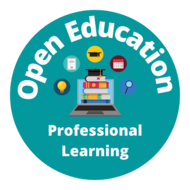
(View Complete Item Description)
The School Librarian Program at Granite State College is based on the foundational belief that school librarians are essential, integral and transformational leaders. The program focuses on preparing school librarians as catalysts for school change and learning for the digital age. In addition to developing the requisite skill sets and knowledge base needed to perform at top levels, there is a focus on the development of dispositions and attitudes such as initiative, creativity, self-direction, resilience, flexibility and intellectual curiosity which are crucial in assisting learning communities to engage in continuous improvement, innovation and reflective practice. The program emphasizes the convergence of these dispositions, skills, knowledge and understandings in order for candidates to achieve and succeed with a strategic plan for schools to ramp up and redesign school library media programs to provide the requisite, robust environment and intentional opportunities for meaningful student engagement with content, ideas, information and technology.This module is intended to be completed over the course of a 12-week semester and is designed to develop understanding about becoming a more effective school library leader within the evolving contexts of the digital age – especially related to the assessment of leadership dispositions and competencies needed to ramp up and redesign school library programs to provide the robust, flexible environments and intentional opportunities for meaningful student and teacher engagement with OER content, ideas, information and technology. The module addresses five areas of focus — preparation (2 weeks), planning (2 weeks), organizational strategy and change (3 weeks), transformational learning (3 weeks) and reflection/synthesis (2 week).
Material Type:
Module
Author:
Susan Ballard




















